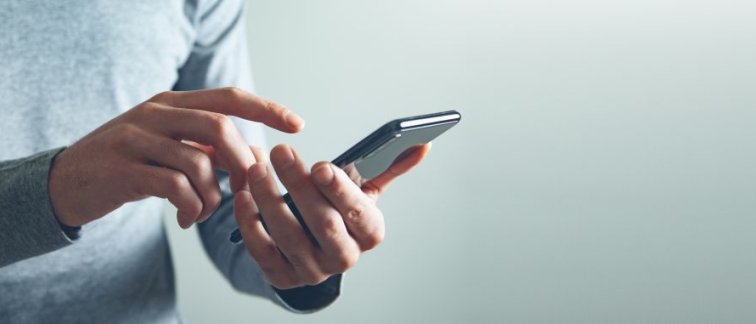Through the BackUp app, patients put a safety plan, created with their clinician, on their cell phone. The EMA app sends patients a message 3-4 times a day asking them to indicate mood and suicidal thoughts on a 7-point scale. The answers are processed into a chart, which they can discuss with their practitioner.
Good ratings of the apps
Participating patients found using the BackUp app ‘very helpful’. 'Because now they always have their safety plan with them,' says project leader Van Ballegooijen. Just how important it is for people to be able to consult their safety plan immediately is evident from previous studies. Van Ballegooijen: 'Safety plans prevent suicide attempts in people with suicidal thoughts because they explain what the patient can do during a crisis'.
The EMA app also received positive reviews. Van Ballegooijen: "Patients discovered that their mood and feelings of hopelessness sometimes change from one part of the day to the next. We already knew that from suicide prevention research. This app also makes that insightful for patients. It often gave them hope to discover that things are not always worse'.
Improved communication between patients and practitioners
Communication with practitioners also improved. Patients do not always remember very well how they are doing; the EMA app tracks that accurately from day to day. 'That can provide more tangible leads for treatment,' says Van Ballegooijen.
Resistant treatment field
Most of the mental health clinicians who were trained to apply the apps in their practice ended up not presenting patients to test them after all. 'We see in a lot of e-health research that the treatment field is resistant. That has to do with the technology, which many practitioners still have little experience with'.
Valuable data from research
'That doesn't make the research any less valuable,' says Van Ballegooijen. 'Also because it provided data that give more insight into individual factors that lead to thoughts of suicide. 'In previous studies, patients were followed for 2 weeks at most. We were following them for 3 to 6 months. Our data indicate that suicidal thoughts vary more from one individual to another than we thought.'
Participants reported strong daily fluctuations in the severity of those thoughts, but it could also be seen that long-term patterns varied greatly per individual.
Follow-up research on suicide prevention apps
Van Ballegooijen has plenty of plans for follow-up research. For example, he wants to investigate EMA and the BackUp app at crisis services and emergency rooms. 'People who end up there because of a suicide attempt often fall into a void afterwards. I want to investigate whether they also benefit from these apps’.
The BackUp app is available for anyone to download from the 113.com website.
The EMA app is not yet available.
Are you thinking about suicide? Or are you worried about someone else? Call 113, call for free 0800-0113 or chat at www.113.nl.
Are you in immediate danger of death? Then call 112.
Based on the full article by ZonMw (in Dutch).

